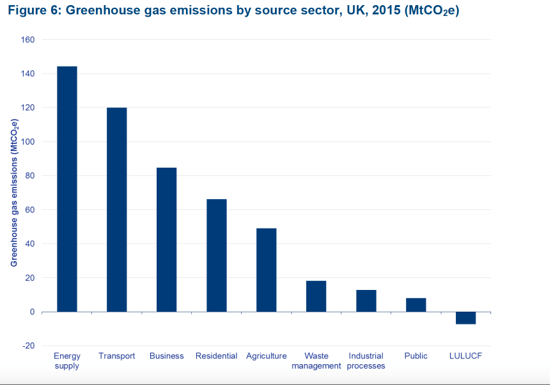
Offshore Europe 2019 has precipitated a number of reports on the importance of Carbon Capture Utilisation and Storage (CCUS) to achieving the UK’s net zero target. Indeed some commentators state that CCUS is essential; it is not an option.
CCUS being ‘essential’ for the UK is a statement I struggle with. I appreciate many reputable organisations and committees have supported the essential assertion but I, and many others I communicate with, find the essential conclusion difficult to support.
As a consequence of the removal, treatment and compression of carbon dioxide there is a large parasitic energy load associated with CCUS. The upshot is that more hydrocarbons have to be produced and combusted to provide the required heat and power for CCUS. So when we are seeking to reduce fossil fuel production, CCUS does the opposite. Of course the carbon is captured at site but as a consequence of the required increased fossil fuel production, the emissions from the off-site assets producing the additional fossil fuel for CCUS will increase. CCUS therefore seems fundamentally flawed. CCUS is also short term – we know that we have to transition away from fossil fuels.
As a reminder of the UK’s greenhouse gas producers the following is extracted from the BEIS report ‘UK Greenhouse Gas Emissions, Final Figures, Feb 2017’

Note that the energy supply bar includes a large percentage of emissions from electricity production for domestic homes.
I would agree that CCUS may be essential if we fail to adequately support the other emissions reduction options. If not CCUS what are the alternatives to deliver on net zero?
The Carbon Neutral House
As I have pointed out in Energy Voice before the largest user of energy in the UK is the domestic household. If we could deliver on the carbon neutral house huge inroads would be made to delivering on net zero.
Energy Efficiency
Energy efficiency in the household can be extended into business. It strikes me that key to carbon reduction is to use less energy, that is to focus on the demand side rather than supply.
Hydrogen
If we have to combust something let us make it hydrogen. Not hydrogen produced by steam reforming and carbon capture (CCUS) but green hydrogen produced by water electrolysis powered by renewables. Hydrogen offers huge carbon reduction potential in energy supply and for business use.
Renewables
Renewables (wind, solar, tidal, wave) have a massive role to play in reducing emissions from energy supply.
Electric Vehicles
Transport is a major source of greenhouse gas emissions. By using EVs powered by renewables it is clear that material carbon savings will be delivered. Also, if we charge EVs from renewable sources it means that the oil and gas producers and refiners have to work less hard. Producing less diesel and petrol reduces the large carbon footprint of the hydrocarbon production and refining industry.
Nuclear
Nuclear is also a key enabler for providing carbon free energy.
BECCS
A form of carbon capture that is an improvement is bio-energy with carbon capture and storage (BECCS). Here a biomass is used to produce energy and the carbon captured and stored. Although this option will still require additional energy for capture and storage it is a process that removes carbon from the environment thus providing negative emissions.
Agriculture, Land use, land-use change, and forestry (LULUCF)
Agriculture is a large source of greenhouse gases as a result of emissions from livestock, agricultural soils, stationary combustion sources and off-road machinery. Modifying land use can deliver significant levels of carbon reduction through photosynthesis. Like BECCS it will result in negative emissions.
Also, through diet changes and minimising meat production we can further reduce the production of greenhouse gases.
Waste Management
Emissions from waste management result from waste disposed to landfill sites, waste incineration, and the treatment of waste water. Stricter waste management practices are being implemented which will further reduce the associated emissions.
Industrial Processes
The largest source of emissions in this category is cement production, with contributions from other processes such as iron and steel. It is, though, only 2-3% of the UK’s carbon emissions and the closure of Scunthorpe will reduce this figure. It is therefore surprising that these processes receive so much interest as UK CCUS candidates. It is appreciated that worldwide these industries are a much higher percentage of carbon emissions meaning CCUS might have a place outwith the UK. Also, there are some very interesting developments with low carbon synthesis routes to cement.
Public
Emissions here are from natural gas heating of public buildings and the same comments as the carbon neutral house apply.
To be clear, I am not saying CCUS will not help towards meeting the net zero target. What I am contending is that it is not essential and there are much better net zero options as indicated above. Whilst I appreciate investment is being made to deliver on the aforementioned alternative options, I believe that substantial additional investment is required to meet net zero. I am also contending that CCUS is fundamentally flawed in that it increases fossil fuel production, it is very expensive and will absorb UK funds that could be used much more productively elsewhere.
Recommended for you
